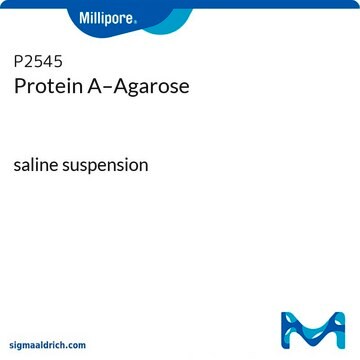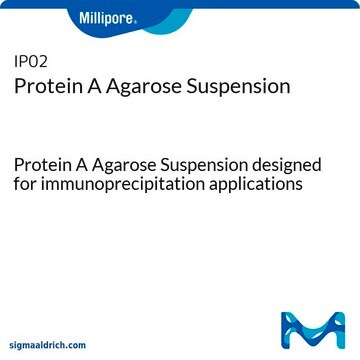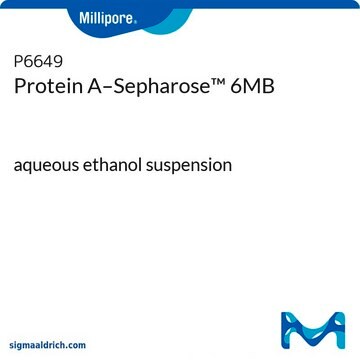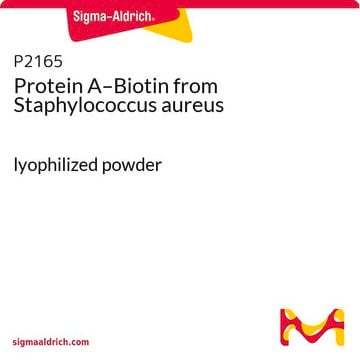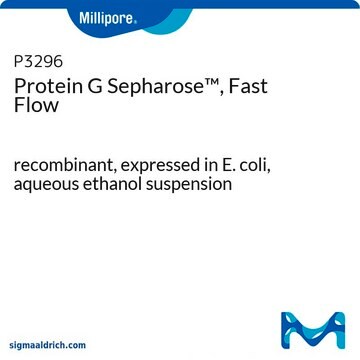P1406
Protein A–Agarose
lyophilized powder
Synonym(s):
Protein A resin
About This Item
Recommended Products
form
lyophilized powder
extent of labeling
~2 mg per mL
matrix
Cross-linked 4% beaded agarose
matrix activation
cyanogen bromide
matrix attachment
amino
matrix spacer
1 atom
capacity
≥15 mg/mL binding capacity (human IgG)
storage temp.
−20°C
Looking for similar products? Visit Product Comparison Guide
Related Categories
Application
Quantity
Physical form
Signal Word
Danger
Hazard Statements
Precautionary Statements
Hazard Classifications
Eye Dam. 1 - Skin Corr. 1B - STOT SE 3
Target Organs
Respiratory system
Storage Class Code
8A - Combustible corrosive hazardous materials
WGK
WGK 3
Flash Point(F)
Not applicable
Flash Point(C)
Not applicable
Personal Protective Equipment
Regulatory Listings
Regulatory Listings are mainly provided for chemical products. Only limited information can be provided here for non-chemical products. No entry means none of the components are listed. It is the user’s obligation to ensure the safe and legal use of the product.
PRTR
Class I Designated Chemical Substances
ISHL Indicated Name
Substances Subject to be Indicated Names
ISHL Notified Names
Substances Subject to be Notified Names
JAN Code
P1406-BULK:
P1406-1G:
P1406-250MG:
P1406-1.5G:
P1406-VAR:
P1406-5G:
Certificates of Analysis (COA)
Search for Certificates of Analysis (COA) by entering the products Lot/Batch Number. Lot and Batch Numbers can be found on a product’s label following the words ‘Lot’ or ‘Batch’.
Already Own This Product?
Find documentation for the products that you have recently purchased in the Document Library.
Customers Also Viewed
Related Content
Access high-quality reagents for antibody workflows, including adjuvants, blocking reagents, conjugation kits, and more.
Our team of scientists has experience in all areas of research including Life Science, Material Science, Chemical Synthesis, Chromatography, Analytical and many others.
Contact Technical Service

